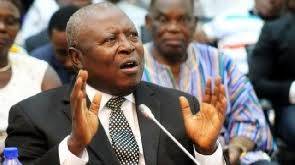Martin Amidu Examines Controversy Surrounding Four 'Vacant' Seats in Parliament
In recent weeks, the Ghanaian political landscape has been stirred by a growing controversy regarding four 'vacant' parliamentary seats. Former Special Prosecutor Martin Amidu has taken a deep dive into this issue, raising critical questions about the implications for governance and electoral integrity. As discussions unfold, Amidu’s insights shed light on the complexities surrounding parliamentary representation and the legal ramifications of these vacancies.
Background of the Controversy
The controversy emerged after four Members of Parliament (MPs) were declared absent from their duties, leading to claims that their seats should be considered vacant. The situation has sparked intense debate among political commentators, party officials, and the general public about the criteria for declaring a parliamentary seat vacant and the process involved. The four MPs, representing various constituencies, have faced scrutiny over their absences, which some constituents argue undermine the democratic process and effective governance.
Amidu, known for his staunch advocacy for accountability and transparency, has scrutinized the circumstances leading to the declarations of vacancy. He argues that the decision to consider these seats vacant must adhere to constitutional provisions and parliamentary rules, emphasizing the importance of due process in such matters.
Amidu’s Perspective on Governance
In his examination, Amidu underscores the significance of parliamentary representation in a functioning democracy. He notes that the absence of elected officials can create a disconnect between constituents and their representatives, ultimately affecting the quality of governance. This disconnect raises concerns about the responsiveness of government to the needs of the people, especially in times of crisis or when urgent legislation is required.
Moreover, Amidu highlights the potential political motivations behind the declarations of vacancy. He questions whether the actions taken by certain political factions are aimed at gaining an advantage in the upcoming elections or furthering partisan interests, rather than focusing on the welfare of constituents. This aspect of the controversy calls into question the integrity of the political process and the ethical responsibilities of elected officials.
Legal and Constitutional Implications
Amidu's analysis also delves into the legal framework governing parliamentary vacancies in Ghana. According to the Constitution, a seat may be declared vacant under specific conditions, including the resignation of the MP, a prolonged absence without justification, or disqualification based on legal grounds. He emphasizes that any move to declare a seat vacant should follow these stipulations to avoid undermining the rule of law.
In his writings, Amidu calls for a thorough examination of the existing laws and regulations surrounding parliamentary attendance and vacancy declarations. He advocates for reforms that would enhance accountability among MPs, ensuring they fulfil their obligations to their constituents. Such reforms could include stricter attendance requirements, transparent reporting mechanisms, and clear consequences for prolonged absences.
Conclusion
The controversy surrounding the four 'vacant' seats in Ghana’s Parliament raises essential questions about representation, accountability, and the integrity of the electoral process. Martin Amidu’s examination of the issue brings to light the complexities and implications of such declarations, urging stakeholders to prioritize the interests of constituents over partisan politics. As Ghana moves forward, it will be crucial for political leaders to engage in meaningful dialogue about the governance challenges facing the country and to implement reforms that strengthen democratic practices. The situation serves as a reminder of the responsibilities held by elected officials and the vital role they play in ensuring the voices of the people are heard and represented in Parliament.




No comments yet
Be the first to share your thoughts!